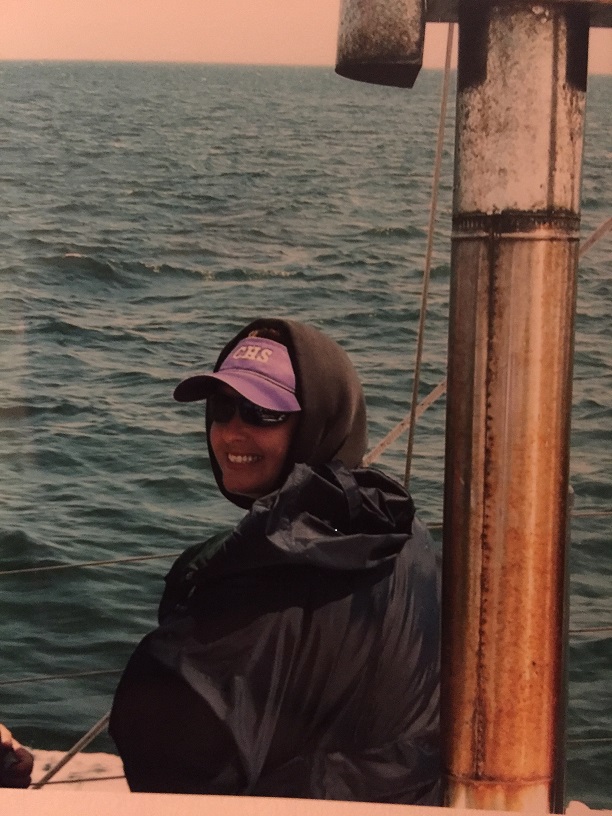Teacher Spotlight: Michele Gates
photo used with permission of Michele Gates
Science teacher Michele Gates on a sailboat in the Bay of Fundy in 2010.
March 28, 2021
Michele Gates is the oceanography teacher at Chantilly. She has a large history with marine biology and oceanography and got a degree at Virginia Tech and George Washington University. She spent seven summers in the Gulf of Maine with the College of the Atlantic.
Why did you choose the field you are currently teaching in?
While I was in high school, biology was my favorite subject. I had the best teacher! I then had the same teacher again for oceanography (also in high school). It was after her class I decided I wanted to teach biology and oceanography.
What is your favorite part about teaching your specific class?
Oceanography is a culmination of all the science classes (biology, chemistry, environmental science, geosystems and physics) all rolled into one course. I am quite fond of studying the ocean myself so I can continue to learn alongside my students. Plus, who is not interested in learning about the ocean?
Why did you choose to be a teacher?
I was inspired by my high school biology teacher initially. I have a degree in biology, so I had to get my master’s degree in education. I enjoy learning, and I thought I might be able to inspire and motivate students to enjoy learning too, especially science.
What did you do prior to teaching at Chantilly High School?
I was a genetic engineer working in research and development (R&D) on a variety of therapies. My biggest project at the time was researching porcine endogenous retroviruses and the ability to inhibit the viral load for xenotransplantation of organs. It was interesting work, however, I thought I might have more success in the classroom.
What is the most difficult part of teaching your subject?
Are you kidding, teaching oceanography is the best job ever!
Why would you recommend students take your subject?
One it is interesting, two there is still so much to discover about the ocean and three it is just cool. We have fun in class all while learning about something that is interesting to most people. It is neat to see students applying the science they have learned over the years together to get a more complete understanding of the core science disciplines.


